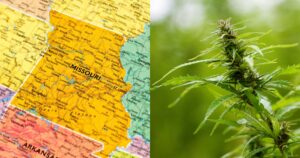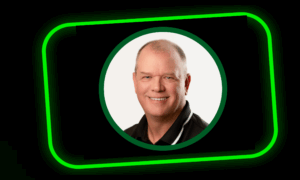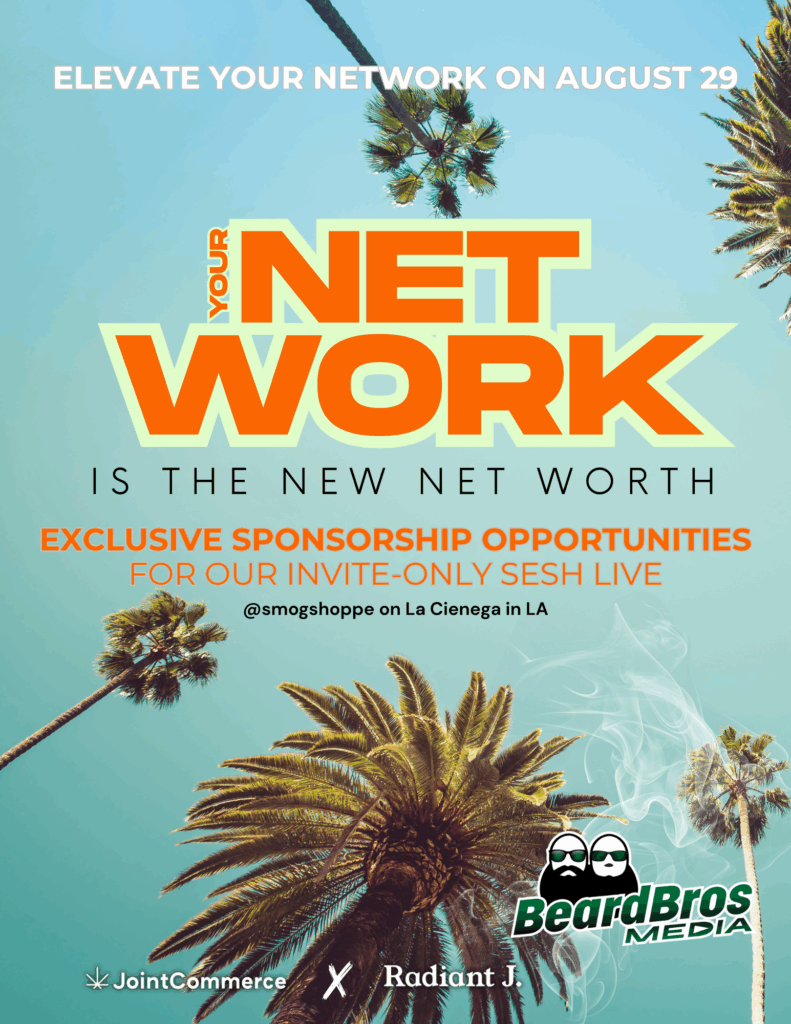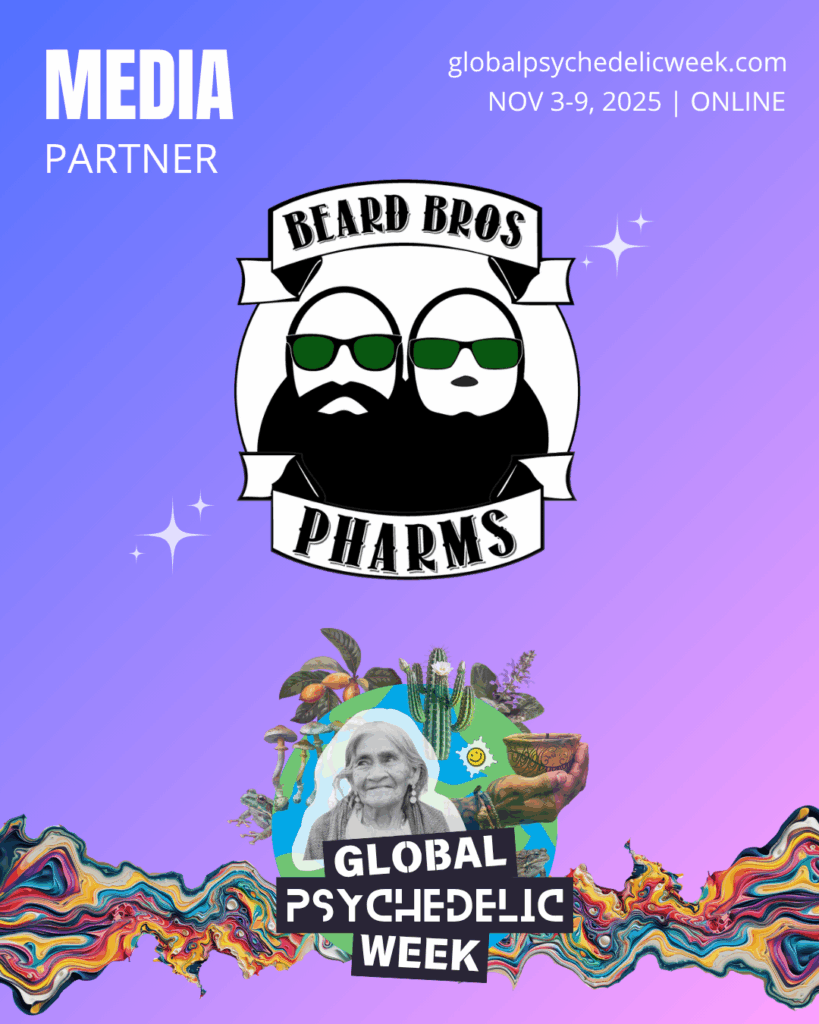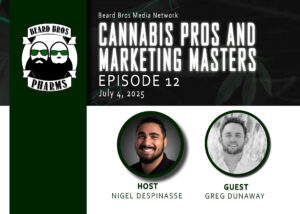Originally published by HiBnb.us
There’s more to Cheech & Chong comedy pioneer Tommy Chong than meets the high. On the group’s eight albums and seven films released in the ’70s and ’80s, Chong is the Hardy to Cheech Marin’s Laurel — the dopey, but lovable sidekick who may be the butt of many of the jokes, but frequently drives the stoner humor to its most memorable laugh-out-loud moments (remember, “Dave’s not here!”). But five minutes with one of the most venerated cannabis comics, and it’s clear that Chong has a spirituality, depth, and awareness that belies the character he plays.
“Not many people really know me,” he says during an interview with HiBnb. “I think that’s true for most comedians. People just know their comedy. You will find that most comedians — Bob Hope and Cheech, himself — they’re as close to genius as you can get. I’m not saying that I am. What I have is not so much genius, it’s the fact that I acknowledge my sources and feed from them.”
For Chong, who feeds from such deep thinkers and theologians as Joel S. Goldsmith, Emmet Fox, and Lobsang Rampa, comedy is part of a spiritual quest. It’s a search for understanding and a journey to spread knowledge and awareness through various mediums and disciplines.
“When you become a vessel — with the endless energy and wisdom that’s been given to me — it allows you to do a lot of things you never dreamed of doing. When you follow these signs, they guide you in various directions. You just have to pay attention.”
In their heyday, Cheech & Chong paid attention to the signs and learned what worked. They were humorists, performers, and products of their generation. They loved recreational pharmaceuticals and while the characters they played didn’t directly mock drugs, they were fueled by the stereotype of the “burn out.” It’s something that has rankled many contemporary cannabis advocates. But that was then. The cultural zeitgeist was different than it is today and although Cheech & Chong parodied the public’s perception of potheads, they created heroes out of the two glaze-eyed tokers.
Sure, comics like Lenny Bruce, George Carlin, and Bill Hicks have taken a more philosophical and/or political approach to weed culture, but Cheech & Chong never went for political comedy, yet, as members of the counter-culture they had some of the greatest impact on the mainstream. Their characters fought against the establishment, not necessarily to raise awareness or side with a movement, but because they wanted to get high, not busted. And while Cheech & Chong’s sketches were always enjoyable for their wit and silliness, the duo was laughing with cannabis users, not at them. And they laughed all the way to the bank, landing cinematic success with low-budget movies that still resonate with the public. And Cheech & Chong continue to build their global fanbase of marijuana advocates or users who have laughed along with them, even when their jokes seemed to reinforce tropes about potheads.
In 1985, after 14 years together, the team broke up when Cheech Marin decided to pursue other forms of acting. While the split caused friction, it didn’t completely destroy their longtime friendship. Cheech & Chong took part in one-off reunions and short-term projects over the years, including appearances on the TV shows South Park and The Simpsons (twice) and they launched the Light Up America tour, which opened in Ottawa in September 2008 and ran through 2009. In addition, Cheech & Chong performed their best-known sketches for the 2013 film Cheech & Chong’s Animated Movie. Though they haven’t done much together over the past decade, they’ve stayed in touch and are working on partnership licensing deals.
“Any of that negative stuff is behind us now,” says Chong. “We’re still in contact all the time. We’ve got our Cheech & Chong cannabis company together, and we’re looking to open a dispensary and go public in a few months. He’s working a lot as an actor and since the pandemic, I haven’t even thought about that. But we’re, we’re going to
concentrate on making this thing huge.”
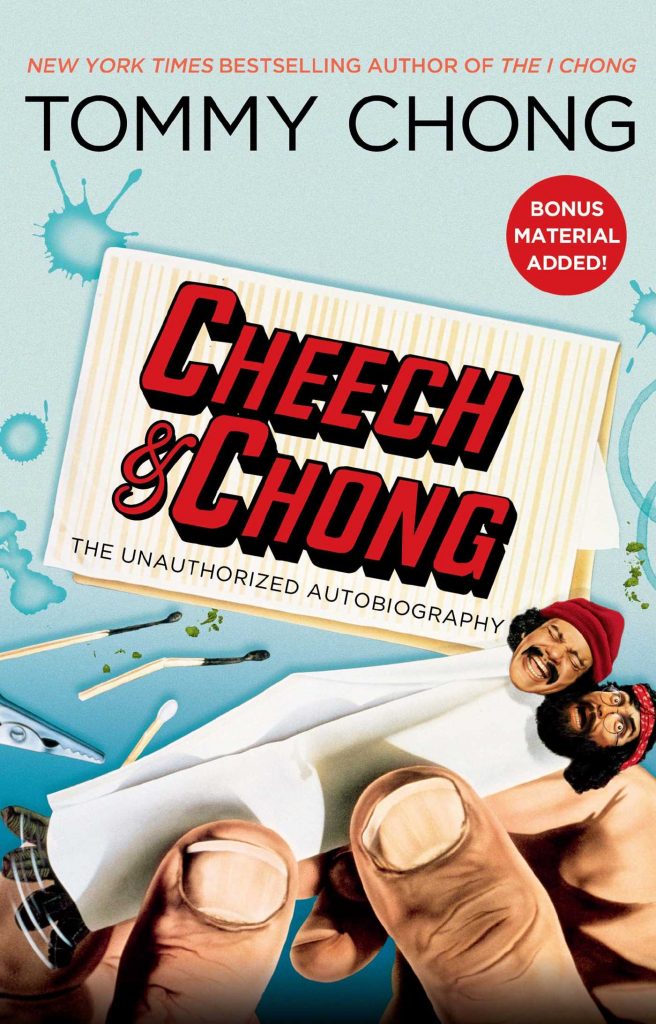
Now 83-years old, Tommy Chong is hardly the epitome of a sleepy old man. He’s attentive in conversation, eats well, exercises regularly, and remains a figurehead for both cannabis culture and cannabis capitalism. In addition to opening a dispensary with Marin, Chong avidly promotes Hemp and CBD products on his website. And despite having survived a six-month stint in prison and two battles with cancer, Tommy Chong shows no signs of slowing down to smell the buds. He’d rather smoke them and credits cannabis for getting him through his medical ailments.
Chong speaks softly and slowly, carefully choosing his words because he understands their power. As a celebrity and entrepreneur, he hopes to become a major force in normalizing cannabis and even helping to revolutionize capitalism. “People ask me, ‘What is your goal?’ They’re expecting me to say that I want everyone to get my marijuana. But I tell them my goal really is — and I’m serious — I want to become one of the richest men in the world because that’s how you change everything. You just gotta have the wherewithal to do it. And it’s so doable. That’s what kills me.”
HiBnb: Being one of the richest men in the world is a lofty goal. What do mean when you say it’s so doable?
There are billions of people out there and all they have to do is buy my products. And that’s the tool that we need to change society — put the money in the right places. You don’t change society by buying big yachts, private airplanes, and multiple homes, and going from place to place trying to dodge taxes.
What would you do to revolutionize society?
The way you change the world is to create employment. You spread the wealth. Poor people are the best people to give money to because they spend it. They don’t hoard it. The trouble with a lot of rich people is when they get to the point where they’ve got lots of money, they hoard it as much as they can. They harm society by not paying their taxes and by not sharing. So, at the end of their life, they’ve got a lot of numbers in their bank account and they’ve got a lot of spoiled offspring that are just like them. They’ve got nothing to show for all their wealth and they’re not doing anything to make the world a better place.
How do you feel about billionaires like Jeff Bezos and Bill Gates? On the one hand, they’re driving mom-and-pop companies out of business and turbo-charging consumerism. At the same time, they’re giving millions of dollars to charities and creating jobs for those who want to work for them?
They give money, but who gets it? And what’s in it for them? Look at the United Way. They brought in millions and millions and millions of dollars and it all just went to the people that were running the place. It turned out to be a big scam. The money was supposed to help fight cancer, assist disabled kids, and other stuff, but we’re dealing with a corrupt system. People don’t have the right priorities. We got AI, for instance, which can do all sorts of things, but we can’t figure out how to fix spinal cord injuries? We can send billionaires up for a little six-minute ride in space, but we can’t come up with a computer that can copy the spinal cord and fix it so victims are not in constant pain and relying on addictive drugs from the pharmaceutical industry? We need to use technology to do things like get people walking again and using their limbs.
Would those be priorities for you if you were Elon Musk?
Right now, those super-rich guys are out of touch and when I become wealthy I’ll know how to fix a lot of the problems because we already have everything we need. We have the right organizations but they’re not being used or they’re being used the wrong way. We have to realize our potential and use everything at our disposal to fix things in the right way.
Like what?
That brings me back to AI — artificial intelligence. We should use that, not so much to protect the country against a war or to figure out how to take over another country. We should use it to create a system of education because the gold in the wealth of a nation is their intelligence. And right now, we’re sorely lacking.
When did you figure out the secret to making the world a better place? Is that something you’ve known forever that stemmed from your ’60s aesthetic?
No, man. Sitting in jail, I connected with the spiritual world and I’ve been right there since I did that. I’ve been, been given messages and instructions.
You’re talking about the nine months you spent in a California Federal facility between October 2003 and July 2004. You pled guilty to selling bongs over the internet through your family-owned company Nice Dreams Enterprises. Did you communicate with a higher power while you were in the pokey?
It’s more like you receive signals and messages if you’re open to them. I never talk to God. I listen to everything. We have nothing to say to God. People pray to God about personal things and think they’re talking to a good friend that cares about them. God doesn’t care. He doesn’t give a shit about anybody. He’s too busy. There’s endless universes and that makes our universe and our little planet pretty insignificant.
Yeah, but that’s kind of bleak and existential to think that everything is meaningless?
But I also figured out recently that everything has an opposite, right? You can’t have one without the other. So, if the physical universe is so huge, the spiritual universe is the opposite because there’s no need for anything physical. Basically, our soul is about the size of a thought and that’s how you can explain all the endless souls. We keep multiplying and creating, but nothing dies. It only changes. That’s what the I Ching says.
You wrote a book called I Chong: Meditations From the Joint. When did you become enlightened by the I-Ching?
I’ve studied a lot about spirituality and the I Ching was really important for me. But the way I really decided for myself that everything has an opposite was when I was talking to someone about Donald Trump. Because Trump is so evil and I said, “But he’s the opposite.” He was the opposite of Obama. Obama was so sweet and gentle. And here comes Trump — evil. And then Biden comes and he’s the opposite of Trump. So, will the next guy be the opposite of Biden? I hope he’s not as bad as Trump.
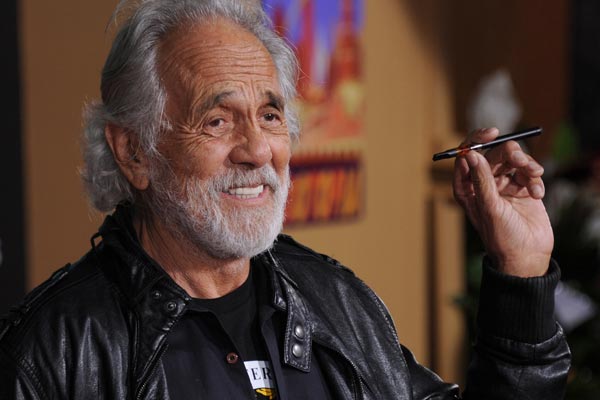
Can you describe your spirituality in simple terms? It doesn’t seem like a conventional Judeo-Christian style of theology.
It totally is. The only difference is that I believe we’ve been given all the secrets since the beginning of time. The Christians and all religions have one thing in common. They all worship God. They may have different concepts of God but they all worship. There’s not one religion that doesn’t. And the ones that don’t — the Scientologists and Satanists, for instance, they’re worshipping fiction more than anything else.
Some would say those other religions are bowing to money and power, not God.
Yeah, so much of this world is all about money, but there’s spiritual growth there as well because we are spiritual creatures. We all have the God app installed in us. That’s the way I explain it. It’s like with an iPhone. There are all these apps in it and I don’t understand them all because I’ve never used a lot of them, and that’s typical of the human body. We’ve got all these apps in our system because that’s what created AI. It wasn’t a robot it was a human, and the same thing goes for computers.
You Discovered Spirituality During Your Time In Jail?
No, that’s where I had enlightenment, but I found out about the spiritual world really early. When I was eight years old I went to Bible Camp. I was so into it and I got so into Sunday school because we were very poor and Sunday School was the only time we had to dress in nice clothes. I loved Sunday school because they told the greatest stories.
The thing that turns people off to religion is the thing that the really spiritual people warn you about — don’t try to preach to anybody. There’s no conversation to be had with people that aren’t ready to evolve. They’re not ready. And if they are, they are. And so that’s why in the scriptures, it says, “Ask, and you shall receive, but you’re not going to receive it automatically.”
(Check back next week for Part II of the HiBnb interview with Tommy Chong and discover how Tommy first discovered cannabis, who inspired him to become a comedian, how he almost launched a career as a musician for Motown, and highlights from his years with Cheech & Chong.)
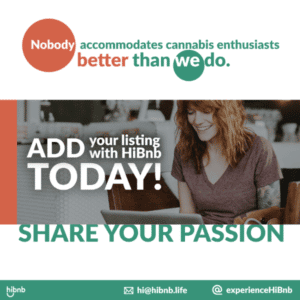

Written by: Jon Wiedehorn
Tommy Chong Reaches For Higher Living & Higher Power (Part 1)
- Trial Begins for Ex-Rohnert Park Officer Accused of Corruption, Highlighting Failures in Cannabis Law Enforcement
- From Los Angeles to Berlin: How U.S. Cannabis Growers Can Lead in Europe — with Germany as the Launchpad
- Federal Judge Upholds Gun Ban for Cannabis Users Despite State Legalization
- Czech Republic Takes Historic Step Toward Cannabis Reform
- Case Study: Financial Litigation Support for a Cannabis Business
- Oregon’s Ryan’s Law Bill Stalls Again, Advocates Vow to Continue the Fight





